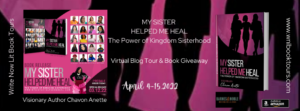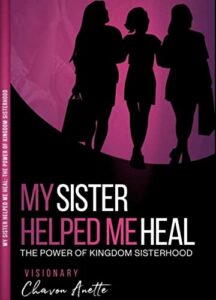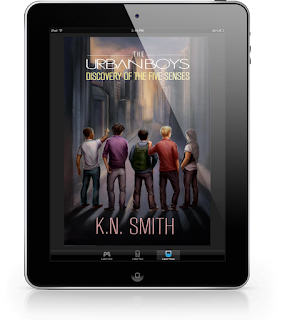Book reviews, author interviews, thoughtful commentary with Lisa Lickel and friends
Tuesday, April 26, 2022
Regionalisms in Writing
Tuesday, April 19, 2022
Western romance and giveaway
Join me and several others in this Western romance special promotion. Sign up for the giveaway.
Enter to win a $40 Amazon US or Amazon Canada gift card
Rafflecopter Direct Link –
https://www.rafflecopter.com/rafl/display/92db7750165
Event Link –
N. N. Light
Website: https://www.nnlightsbookheaven.com
N. N. Light’s Book Heaven is a heavenly place for authors and readers to connect, discover new books, and share their love of reading.
Take your book marketing to the next level -- 60 million social media reach and growing
Amazon Vine Voice Reviewer and Verified Influencer
Freelance Editor and Graphic Designer
YouTube: https://www.youtube.com/channel/UCWer5Z3i---Lv3Hi-SNgxmw
How to move from partisan bickering
About the Book:
My Review:
I appreciate the examples from
science and history about how theories of elements, disease, and energy have
evolved as the methods of testing improved; how the Lincoln-Douglass debates of
the mid-nineteenth century US show that complexities of context shape public
opinion, echoing down through the generations.
Moving beyond bickering can only happen when people are willing. “Reason does not work on those who embrace irrationality,” Hushbeck points out. “For some, truth is just a power structure, a tool for oppressors to use on the oppressed.”
Offering plenty of advice for defining and refining disagreements and errors and avoiding repression and censorship, Seeking Truth is not an answer, but a process. Reaching a common goal is a commitment, a constant testing of theory and practice, and keeping communication open. “Hopefully, if a side consistently loses because of bad arguments, they will seek to develop better ones. As a result, the level of discussion will improve.”
We are fallible, Hushbeck concludes, but learning better arguments “can only improve the process of seeking and bringing us all closer to the truth.”
Mr. Hushbeck's background includes academic studies in religion, history, and engineering, culminating with a Bachelor's Degree in Electrical Engineering, and Master's degrees in both Christian Apologetics and an MBA/Technology Management. As an engineer, he worked for several engineering and technology firms, including five years at NASA's Jet Propulsion Laboratory in Pasadena. There he was part of a team developing a high accuracy GPS receiver. He was also part of the Voyager Flight Team for the encounter with the planet Neptune. His wife Hanna also has dual Master's degrees, one in Nursing with an emphasis in Informatics, and the other in Applied Computer Science. From 1999-2007 they owned their own company, which designed and developed databases and custom software applications for small businesses.
Mr. Hushbeck has taught at the University of Phoenix, and most recently for
Rassmussen College. He has taught, among other things, classes in Information
Technology, Computers Science, and Business. He also taught critical thinking
both to students and to other faculty. http://www.hushbeck.com
v
Thursday, April 14, 2022
conclusion of The Barabbas Trilogy fiction MD House
The Barabbas Legacy by M.D. House
Christians around the globe are preparing for the upcoming Lenten season and the celebration of Easter in a time that is frightening and uncertain for many. In many places Christianity itself is under attack, as is the right of people to freely worship. In this season of reflection and spiritual preparation, what better story to contemplate than the lives of the early church leaders, who spread Christ’s message at a time of great peril and persecution?
In The Barabbas Trilogy, M.D. House has imagined the life Barabbas went on to live after being spared his sentence of death in exchange for Jesus Christ. His journey has intertwined with those of many of the apostles, including Paul, Peter and Luke, as they sacrificed everything to spread the Gospel throughout the world.
Now, author House concludes the story of Barabbas’ life in the final chapter of the trilogy, TheBarabbas Legacy, which follows Barabbas and his wife Chanah as they continue their evangelistic mission across the known world as cauldrons of political and military chaos boil across the Roman Empire.
In this poignant capstone to the trilogy, the man called Barabbas—infamous former thief, murderer and prisoner turned Christian—and his wife Chanah continue their mission of spreading the gospel across the known world as cauldrons of political and military chaos boil across the Roman Empire. Nero is increasingly erratic, and it’s only a matter of time before the sharp knives of imperial politics finish him off. Various successors vie for position. Who will strike first, and who will come out on top?
Meanwhile, the rebellion in Judea has intensified, the Jewish zealots exerting great influence over the minds of the people. General Vespasian and his son Titus aim to put a permanent end to the insurrection. How many lives will ultimately be sacrificed on the great altar of Jerusalem? Can the Jewish nation survive the fulfillment of Jesus’s prophecy? What will become of the Jewish Christians and the apostles and sisters who lead them? And where will Barabbas and his family find lasting peace?
Emperor Nero sat in the first chair to his right, furthest from the audience. Manius had reported on a recent visit that Nero was becoming more paranoid by the day—not just of the people, but of the senators, the Praetorian Guard, his generals, and most of the Roman nobility. Cornelius pitied him sometimes. Thrust into the role of emperor at sixteen by his mother’s murderous machinations, he had probably never coveted the position. What right-minded man would? The knives were always out. Always.
Many of those knives were aimed at Cornelius now. He sighed deeply, just as Nero left his chair and took a position a few feet in front of Cornelius, facing the audience. It was commonly known that a younger Nero had aspired to be a thespian and perform on stage, especially in such a grand theater as the Marcellus. That innocent youth had likely never envisioned this scenario.
“Fellow Romans,” he began in a rich, dramatic baritone. He was nearly thirty, no longer young. He had married at least twice, and one of his wives was dead. So was his mother, on his orders. The apostle Paul had connected with a piece of Nero’s soul, but Paul was not here. Nor was Peter, who had sacrificed himself for the Church. Nor was Barabbas, as far as Cornelius could tell. If he had arrived, he would have announced himself immediately at the home where Cornelius had been loosely confined.
M.D. HOUSE is the author of The Barabbas Legacy, as well as the first two volumes in The Barabbas
Trilogy, I Was Called Barabbas and Pillars of Barabbas. He also authored the science-fiction novel, Patriot Star. Before beginning his second career as a writer, he worked for twenty-five years in the world of corporate finance, strategic planning, and business development. Now, Michael lives in Utah with his wife, where he spends his time writing and enjoying his children and grandchildren. Learn more about Michael and his work at www.mdhouselive.com.
Learn more about M.D. House and The Barabbas Legacy at www.mdhouselive.com.
The Barabbas Legacy is available on Amazon.
Author’s Facebook: www.facebook.com/LiteraryThunder
Author’s Twitter: www.twitter.com/real_housemd
Monday, April 11, 2022
YA Urban Fantasy Thriller from KN Smith
Write Now Literary is pleased to be organizing a two-month book tour and visa gift card for Discovery of the Five Senses: The Urban Boys Series by K.N. Smith. The book tour will run March 1 -April 29, 2022.
Genre: Young Adult Action-Adventure, Young Adult Thriller, Urban Fantasy, Mystery/ Thriller
ISBN-13: 978-0989474757
K.N. Smith, winner of the "Best of" in the category of "Outstanding Young Adult Novel" at the Jessie Redmon Fauset Book Awards, is an author and passionate advocate of literacy and arts programs throughout the world. Her lyrical flair sweeps across pages that twist and grind through action-adventure and urban fantasy in edge-of-your-seat narratives. K.N. has over twenty-five years' experience in communications and creative design as an award-winning consultant. She inspires people of all ages to reach their highest potential in their creative, educational, and life pursuits.
Prologue
And in the absence of even a hint of an exchange, Joaquin spun around and lunged at Ross. He grabbed him by the throat, knocking him down.
With brittle leaves and debris thrust upward, the two were enveloped in a dark, hazy hell as they engaged in a violent struggle for what seemed like an eternity.
Ross flared up. “Get the hell off of me!”
Joaquin persisted. “What are you going to do, Ross? Where are you going to go?”
Ross scrambled to his feet, fighting back with a blow to Joaquin’s head, followed by several body punches. Joaquin stumbled and fell, giving Ross those precious few seconds required for his escape.
Fueled by a rush of pulsating adrenaline, Ross ran frantically, stretching his quivering legs. His rich brown skin tightened as he pounded through the forest. He tried to ignore his thunderous heartbeat while scanning the pathways, searching for possible escape routes.
With his baseball cap lost to the wind, his short, curly hair had exposed to the open air. Ross grasped the moment, one littered with deep panic and a singular appreciation for survival.
This turn of events stemmed from countless episodes in which Joaquin, only nineteen yet extremely demanding, had tried to control those around him.
Five (5) $25 VISA eGift cards.
http://www.rafflecopter.com/rafl/display/77b5716f23/
Friday, April 8, 2022
My Sister Helped Me Heal book tour and giveaway


ABOUT THE VISIONARY

ABOUT THE BOOK
Chavon Anette and an amazing group of women join in an Anthology to share their story about the Powerful gift of Kingdom Sisterhood. The book is about real stories of Sisterhood That helped people move - from broken to whole - from hidden to walking in purpose - from rejected to accepted - from insecure to confident - from afraid to bold as a lioness.EXCERPT
CONNECT WITH CHAVON
Website Twitter Facebook
PURCHASE A COPY
Barnes & Noble
Amazon
ENTER THE CONTEST
Rafflecopter
TOUR ORGANIZED BY Write Now Literary Book Tours

Tuesday, April 5, 2022
Walking on Pins and Needles nonfiction memoir
River Grove Books, February 15, 2022, 268 pp
Health and Fitness
ebook 7.99
paperback, 16.95
Amazon
Tai Chi is not about trying harder; it’s about letting go, being in the moment, feeling balance, and the fluidity of energy.
In this moving and illuminating memoir of one woman’s years-long struggle to understand and conceal her debilitating symptoms as she ascends the corporate ladder in a major airline comes a story of perseverance, rediscovery, and hope in light of multiple sclerosis. As she jumps into the unknown, Faulk finds comfort and healing through Chinese medicine and Tai Chi. Her inspiring story demonstrates how a chronic and debilitating health condition lacks the power to control our lives and stop us from moving in the direction of possibility.
Faulk’s captivating story drew me into her world, from the prologue of a young woman’s dreams of leaping into a responsible career as a new adult, independent in the exciting and challenging era of the 1970 and 80s, all the way to the final page. Memoirs are often so personal that I feel like a voyeur, but Faulk’s engaging and frank storytelling made me part of her story, cheering, booing, encouraging, parental at various points along her journey of discovery. Perhaps because I have personal experience through friendships with this condition, Faulk’s perspective helped me take part in her life through her eyes and grow in empathy.
Arlene Faulk is a teacher, writer, storyteller and accomplished businesswoman. She led Human Resources departments in a major airline for 19 years. Her MS symptoms that she kept secret for years stopped her cold. She jumped into the unknown and discovered health practices that transformed her life. In her award-winning blog, she interweaves Tai Chi principles and her own life experiences to inspire readers to live their best lives.










